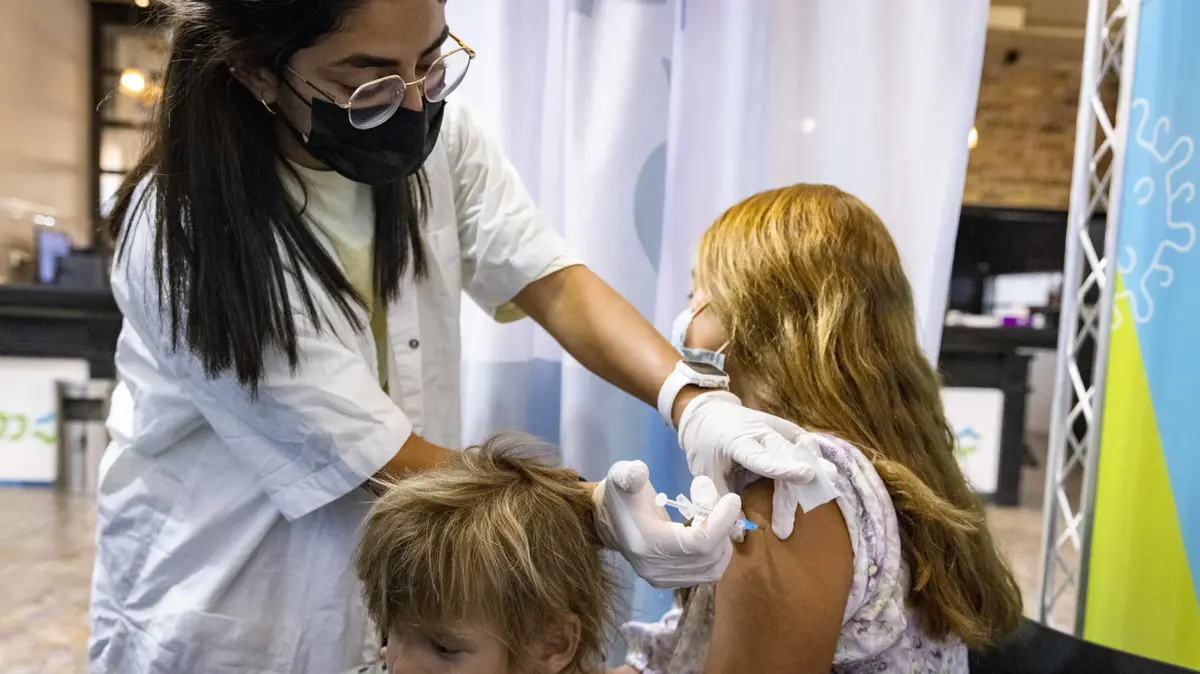Icon: enlarge
Participant in the vaccine study in Johannesburg
Photo: SIPHIWE SIBEKO / REUTERS
The potential corona vaccine from the British pharmaceutical company AstraZeneca has achieved promising results in clinical development.
The "Financial Times" reported on Monday, citing two people familiar with the matter, that a "robust immune reaction" developed in older people, the group with the highest risk of severe disease.
The vaccine AZD1222, which the University of Oxford developed and licensed for marketing to AstraZeneca in April, triggered protective antibodies and T cells in the elderly.
These results complement data published in July showing that the vaccine elicited a "robust immune response" in healthy adults between the ages of 18 and 55.
It is encouraging that the immune responses of older adults were similar to those of younger ones and the negative defense reactions were lower, said an AstraZeneca spokesman.
The results confirmed the safety and immunity of the vaccine.
According to the "Financial Times", the results will soon be published in a scientific journal.
Elderly people are considered to be a particularly sensitive risk group for the disease Covid-19.
At the same time, they often have a weakened immune system, which is why there was concern that a vaccine might not help those who need it most.
This concern is alleviated by the current results.
The approval process of the European Medicines Agency EMA for the AstraZeneca vaccine started on October 1st.
The last phase of the clinical study is still running in parallel, testing the effectiveness and safety of the agent on tens of thousands of test subjects.
The vaccine can only be approved if a large number of non-vaccinated participants have become ill.
According to
AstraZeneca boss
Pascal Soriot
(61), the vaccination should protect against infection for a year.
UK Health
Secretary Matt Hancock,
42, said the vaccine was not ready, but he was preparing the logistics for a possible introduction.
He expects this in the first half of the coming year.
According to The Sun tabloid, National Health Service hospitals in London have been told to prepare for a first shipment of AZD1222 vaccine from the week of November 2nd.
Study continued in the US after a long break
AstraZeneca is one of the leading companies in the race for a corona vaccine, alongside the German biotech company BioNTech with its US partner Pfizer and the US group Moderna.
In contrast to the young biotech companies that rely on the untested RNA technology, AstraZeneca uses conventional vaccination technology.
That makes mass production and logistics much easier.
Among other things, conventional vaccines do not necessarily need to be frozen.
There is also a clear difference in the price that the states pay: while AstraZeneca charges 2.50 euros per dose, according to the Italian Ministry of Health, Moderna wants to market its product for more than 60 dollars for a treatment consisting of two syringes.
However, the biotech companies were able to complete the development of the RNA vaccines in record time and get into clinical trials early.
So far there is no vaccine on the international market.
Russia became the first country in the world to approve a vaccine in August, but it was tested in humans for less than two months.
A few days ago, AstraZeneca was able to resume the US study with its vaccine after it had been on hold for several weeks due to a subject's disease.
In other countries, the studies were allowed to resume earlier.
Last week, the death of a participant in the study in Brazil became known.
Apparently the young man belonged to the unvaccinated control group.
The health authorities and Oxford University saw no reason to interrupt the study.
ak / Reuters









